FMs of Afghanistan neighbors hold virtual summit as Taliban announce government
Foreign ministers of countries neighboring Afghanistan have held a virtual meeting to discuss the latest developments following the Taliban’s takeover of the country and the withdrawal of US-led forces.
The meeting, attended by foreign ministers of Iran, Pakistan, China, Tajikistan, Uzbekistan and Turkmenistan, was held via video conference on Wednesday, a day after the Taliban militant group announced an all-male interim government in the war-torn country.
The summit came about following consultations between Iranian Foreign Minister Hossein Amir-Abdollahian and his counterparts from China, Russia and Pakistan in recent days.
In an interview with the Islamic Republic of Iran Broadcasting (IRIB), the Iranian Foreign Ministry spokesman said on Wednesday afternoon that the virtual meeting followed a meeting of the Special Representatives of the six neighboring countries of Afghanistan.
Iran reaffirms support for will of all Afghans
Saeed Khatibzadeh said the main agenda of the meeting was how to contribute to the fulfillment of the will of all Afghans and the achievement of peace and stability in the country.
Sharing details about the meeting, he said the Iranian foreign minister blamed the 20-year US occupation of Afghanistan as the main culprit for the current situation in the country.
Amir-Abdollahian also called for efforts to tap into the potentials of Afghan leaders and people, along with assistance from Afghanistan’s neighbors, to achieve lasting peace in the country, the spokesperson said.
Citing the Iranian minister, Khatibzadeh said the use of military force would only be a repetition of the same mistake that has happened several times in the contemporary history of Afghanistan.
“Mr. Amir-Abdollahian emphasized in this meeting that everyone should stick to dialogue as a fundamental principle, and the neighboring countries should also help prevent foreign interference in this country,” he added.
During the meeting, diplomats also stressed the importance of providing humanitarian assistance to the people of Afghanistan and respect for international law and international human rights law, the official said, adding that the issue of terrorism in Afghanistan was a serious concern of the neighboring countries
The Taliban, the participants agreed, should distance themselves from terrorism and not allow the scourge to re-emerge in the country, Khatibzadeh said.
Khatibzadeh reaffirmed Iran's priority to help “fulfill the will of the Afghan people, to establish stability and peace in the country, and to form an inclusive government that reflects the ethnic and demographic composition of the country.”
He concluded that it was agreed that the next meeting of the foreign ministers of Afghanistan's neighboring countries will be held in person in Tehran within a month or two if the coronavirus pandemic allows it.
China: Afghanistan stands at crossroads of history
Addressing the virtual meeting, Chinese State Councilor and Foreign Minister Wang Yi called for Afghanistan’s neighbors to exert a more positive influence on the ongoing developments in the country, boost coordination and focus on common concerns while respecting Afghan sovereignty, independence and territorial integrity, China Global Television Network (CGTN) reported.
Wang said China and the other five countries have witnessed the consequences of decades of war on the Afghan people, and have also directly endured the negative influence of the spillover of the conflict.
"No country is more unwilling than we are to see Afghanistan return to war or disaster, and no country is more eager than we are to see it return to peace and development," he said.
He added that the hasty withdrawal of the US and its allies from Afghanistan shows that military intervention and the so-called "democratic transformation" they pursued have ended in failure.
The top Chinese diplomat said the Taliban should also pursue a moderate and stable domestic and foreign policy, break with terrorist forces, and establish and develop friendly relations with all countries, especially with Afghanistan’s neighbors.
Pakistan stresses importance of national reconciliation in Afghanistan
Separately, Pakistan’s foreign minister also urged the international community to help prevent a humanitarian and economic crisis in Afghanistan.
“At the center of our endeavors must remain the well-being of the Afghan people, who have suffered enormously due to conflict and instability for over 40 years,” Shah Mahmood Qureshi said, according to a statement issued by the website of the Pakistani foreign ministry.
He called on Afghanistan’s neighbors to affirm their “full support and solidarity with the Afghan people,” as well as “the unity, sovereignty and territorial integrity” of the country.
“We must stress that Afghan issues should have Afghan solutions,” he noted, adding that, “We must make clear that Afghan soil should not be allowed to be used against any country.”
He also underlined the need for respecting the multi-ethnic nature of Afghan society and stressed the importance of national reconciliation in the country.
Turkmenistan urges joint approach to regional peace
Meanwhile, Turkmen Foreign Ministry said in a statement following the online meeting that Turkmenistan considers the summit a step towards developing a regional approach to regional peace.
"Turkmenistan views this meeting as an opportunity to develop a consolidated regional approach to ensuring peace and security in Afghanistan and further comprehensive development of this nation," the statement said, Russia’s TASS news agency reported.
Turkmenistan was represented by Deputy Foreign Minister Vepa Hajiyev at the virtual meeting.
The Taliban seized control of Afghanistan in a sweeping offensive more than three weeks ago as US-led foreign forces withdrew.
The militants are currently engaged in intense fighting in the Panjshir Valley in the east of Afghanistan, an anti-Taliban bastion and the last holdout region in the country.
The Taliban are to run Afghanistan two decades after they were ousted in a US-led invasion in 2001.
On Tuesday, Iran’s top diplomat also spoke on the phone with Afghanistan’s former president Hamid Karzai, during which they discussed the latest developments in the conflict-ridden state.
Meanwhile, the Taliban’s chief spokesman, Zabihullah Mujahid, has said the new caretaker government will be led by Mullah Mohammad Hasan Akhund.
He also named 33 members of the new government, drawn exclusively from the group’s inner echelons, and said the remaining posts will be announced after careful deliberation.
US-Israeli aggression left Tehran with no choice but to defend Itself: President Pezeshkian
Iran urges immediate intl. action against US attacks on schools
Iraq won’t allow terror groups to cross border into Iran: Security official
Iran’s security chief: Does America come first or Israel with 500 US soldiers killed?
Iran warns all Israeli embassies ‘legitimate targets’ if Lebanon embassy attacked
IRGC pounds bases of anti-Iran terrorist groups in Iraqi Kurdistan
Iran’s Fattah 2 hypersonic missile nearly impossible to intercept: Report
Another girls’ school targeted in US-Israeli attacks on Iran


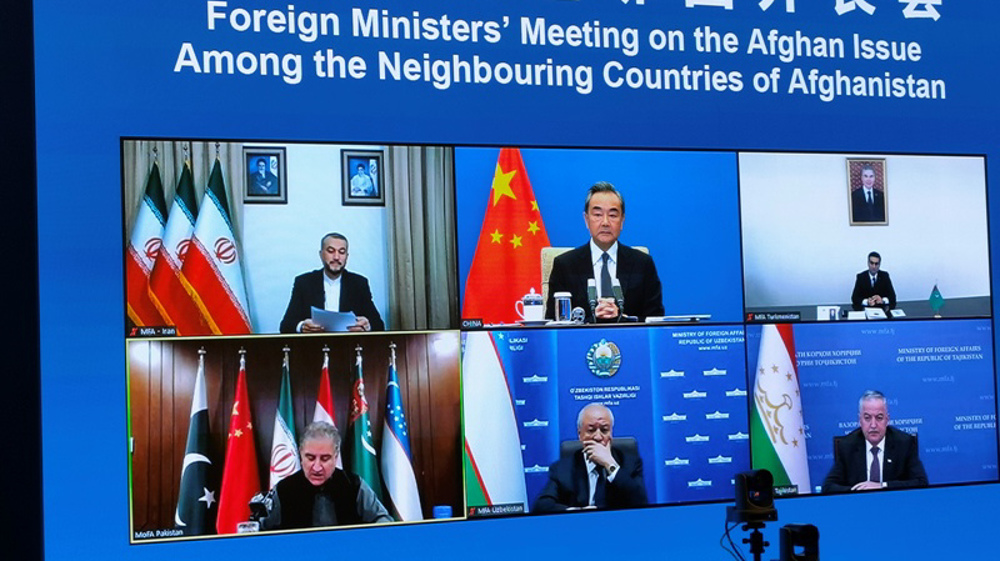

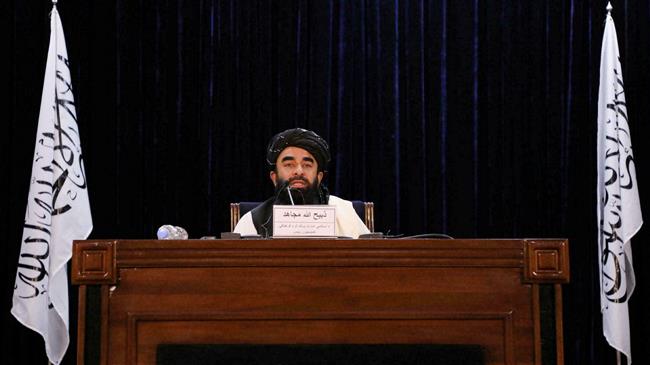

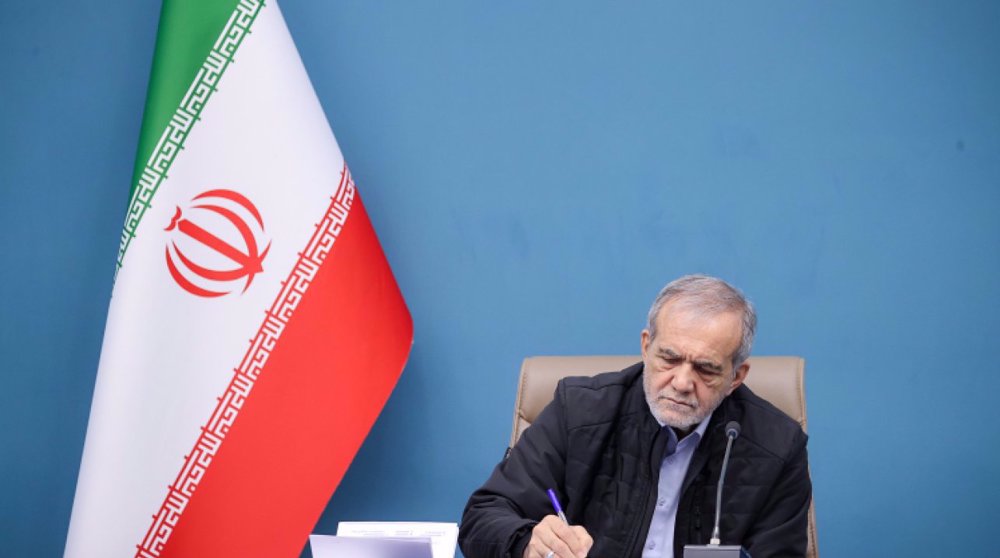
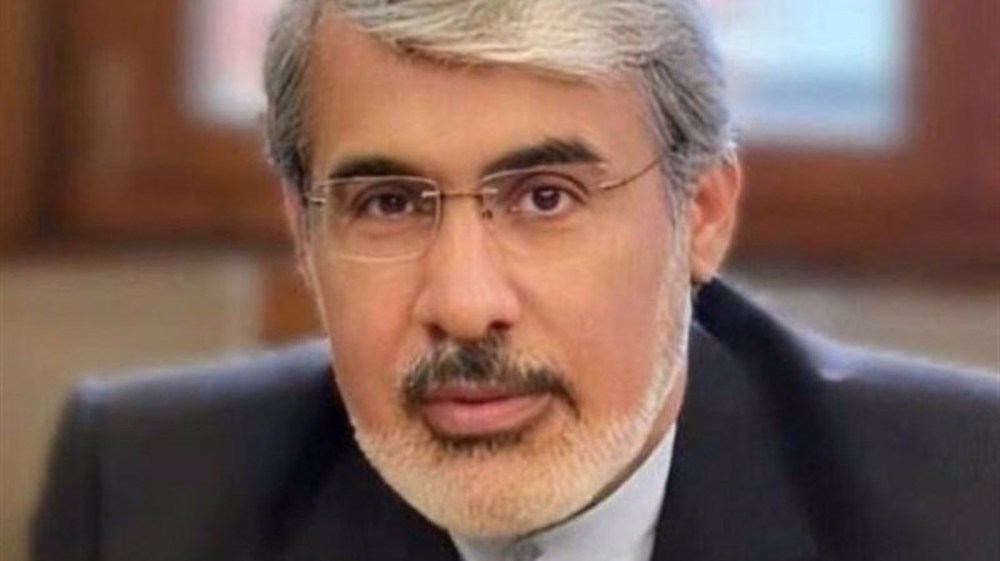
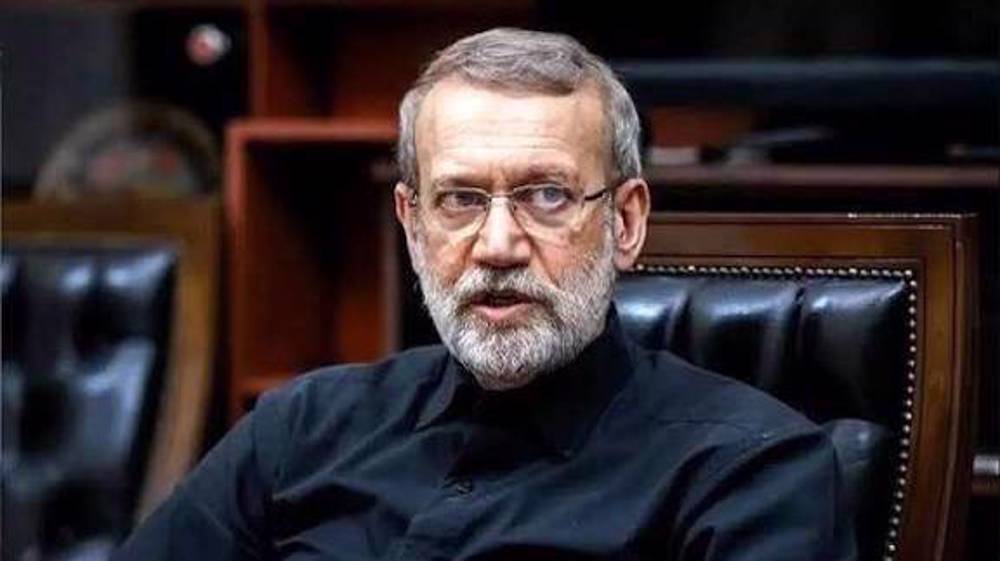




 This makes it easy to access the Press TV website
This makes it easy to access the Press TV website